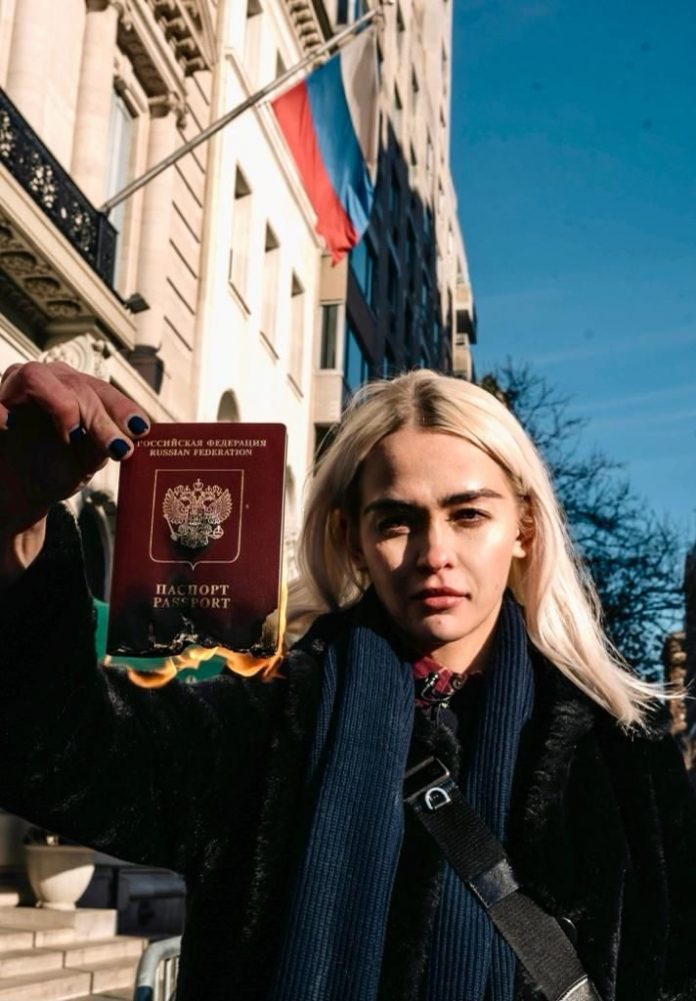Around $22 million in crypto has been raised to help Ukrainians buy arms and supplies, including more than $3 million through NFTs.
On February 26, the Ukraine government’s official Twitter account wrote that it would start accepting cryptocurrency donations. As the Russia-Ukraine war intensified and entered its sixth day on Tuesday, people have answered the call: around $22 million in crypto has been raised to help Ukrainians buy everything from arms to medical supplies, including more than $3 million raised through NFTs.
Because of the relative liquidity of cryptocurrencies, as well as the transparency that the blockchain ledger provides, NFTs have become a tool for art communities looking to support Ukrainian defense and humanitarian ventures. In just under a week, several sales of non-fungible tokens cropped up, with NFTs stepping in as the 21st-century war bond. In the words of the Washington Post, the conflict in Ukraine has become “the world’s first crypto war.”
During major wars, like the Second World War, states would issue wartime bonds and securities to finance their military expenditures, sometimes in the form of stamps. The exhortations to buy these would be spurred by an appeal to moral conscience, which is not dissimilar to the calls being made around NFT sales in recent days.
But like any wartime measure, it is not without its pitfalls.
The crypto-art pioneer, Olive Allen, who is of Russian origin, shared a video yesterday, February 28, of herself burning her passport in front of the Russian consulate in New York. The artist is offering the clip as a single NFT to raise funds for the people of Ukraine.
“I believe as an artist I have a responsibility to capture the essence of our times, push boundaries, and search for deeper meaning,” Allen told Artnet News. “After burning my passport, I guess I am now officially a citizen of the Metaverse.”
The UkraineDAO (a decentralized autonomous organization) co-created by Russian Pussy Riot founder and artist Nadya Tolokonnikova, has so far raised more than $4.6 million USD worth of ETH. The group said 100 percent of the funds it raised would be donated to Come Back Alive, a crowdfunding organization that funds members of the Ukrainian military and their families. (The group was removed from Patreon last week due to rules about raising money for military groups.)
UkraineDAO’s NFT is a single edition of the Ukrainian flag, and is being released alongside a PartyBid, a tool that allows people to collectively bid, and, in case they win, own a fractionalized piece of the artwork.
Pussy Riot’s Tolokonnikova told Artnet News that the organizers ”purposefully avoided adding our own art to this release. In a way it’s our strong conceptual artistic statement. People can have different aesthetics, but it’s not about what color we prefer, it’s about uniting to save lives. The Ukrainian flag unites us.”
Another group called RELI3F raised over $1 million USD worth of ETH through the sale of NFTs. So far, they have deployed 185 ETH (around $485,000) to three wallets associated with Come Back Alive, as well as to local Ukrainian media vetted by the the news organization Kyiv Independent, and a group of frontline workers. The groups says the remaining ETH will be saved to support humanitarian efforts in the event of further destabilization.
According to Aleksandra Artamonovskaja, a RELI3F team member originally from Ukraine who now lives in London, the role of DAOs have been instrumental in mobilizing efforts to fund relief. “The power of Web3 allows money to be distributed in the most effective and transparent way possible,” she told Artnet News.
Artists from the West have also thrown their efforts behind Ukrainians who are fighting off the invasion. Shepard Fairey released a single edition NFT-based work called Diplomacy Over Violence with 100 percent of the proceeds being split between the RELI3F project and UkraineDAO.
With many in the crypto space supporting Ukraine, there is also a moral dilemma at play.
While cryptocurrency and NFTs can be used to help Ukraine with digital war bonds and fast-tracked payments, it can also be used by rogue states to circumvent sanctions. In 2014, for example, the crypto research agency Elliptic found that pro-Russian separatists in Crimea were using crypto to avoid sanctions placed on them. According to Jesse Powell, the head of research at Elliptic, it may not be possible to track, much less freeze, the accounts of Russian clients.































